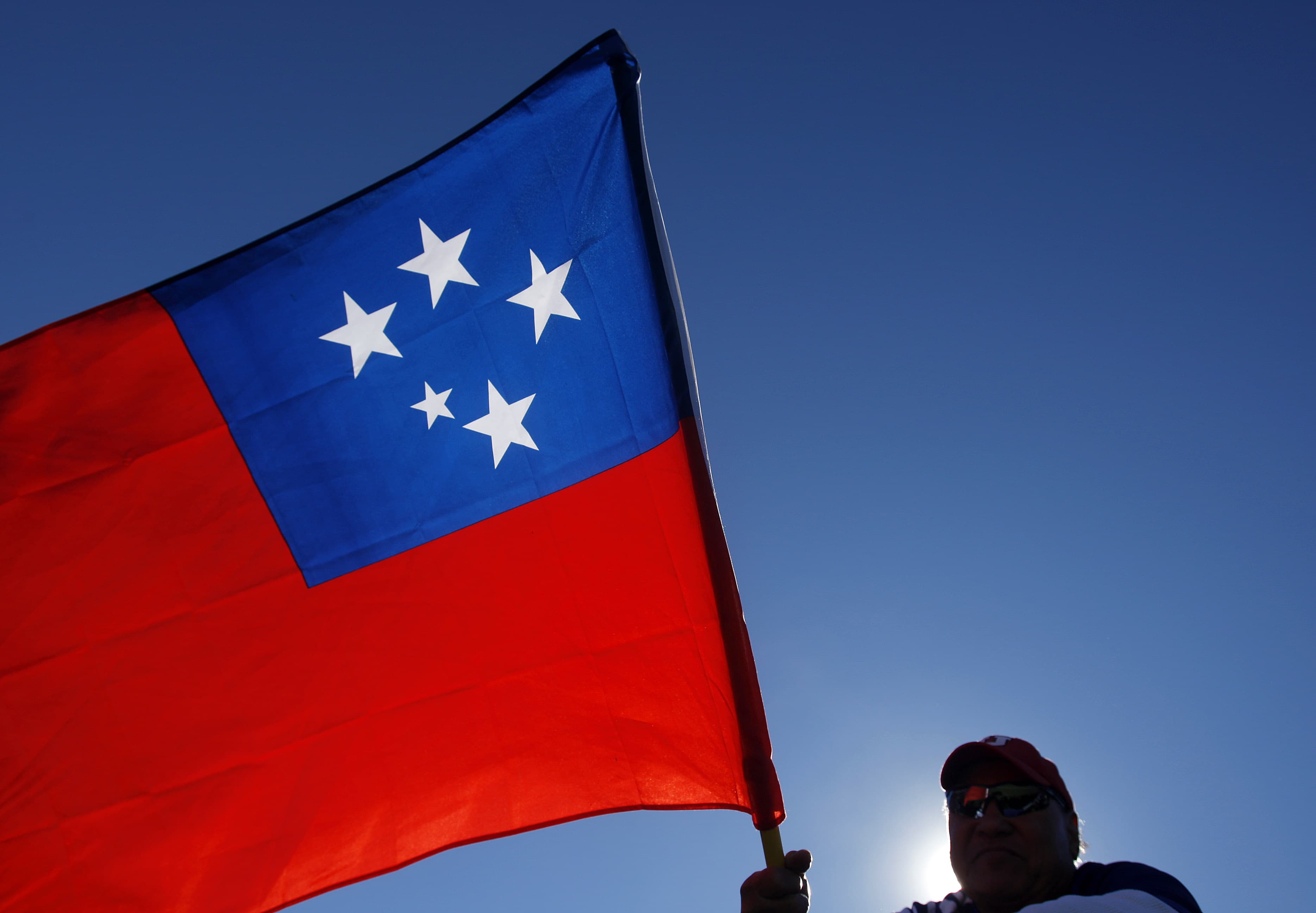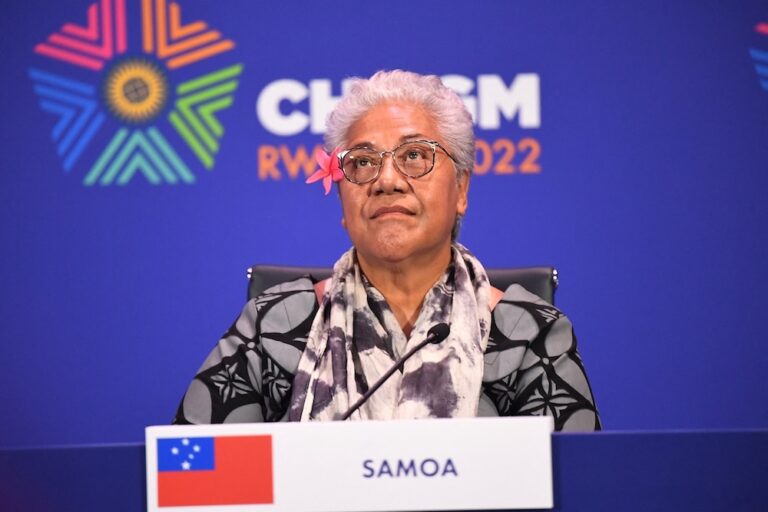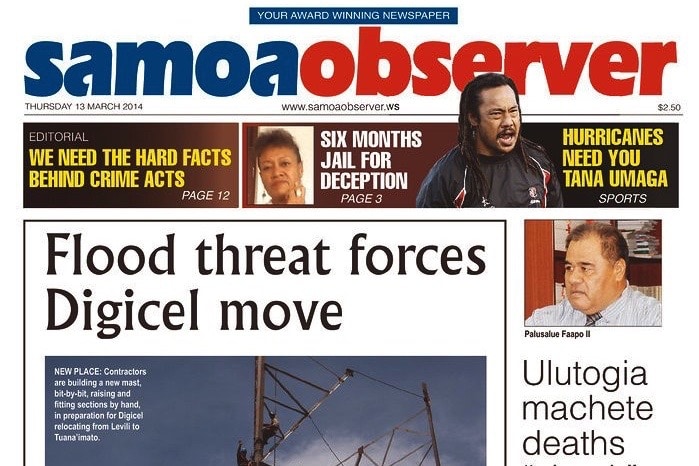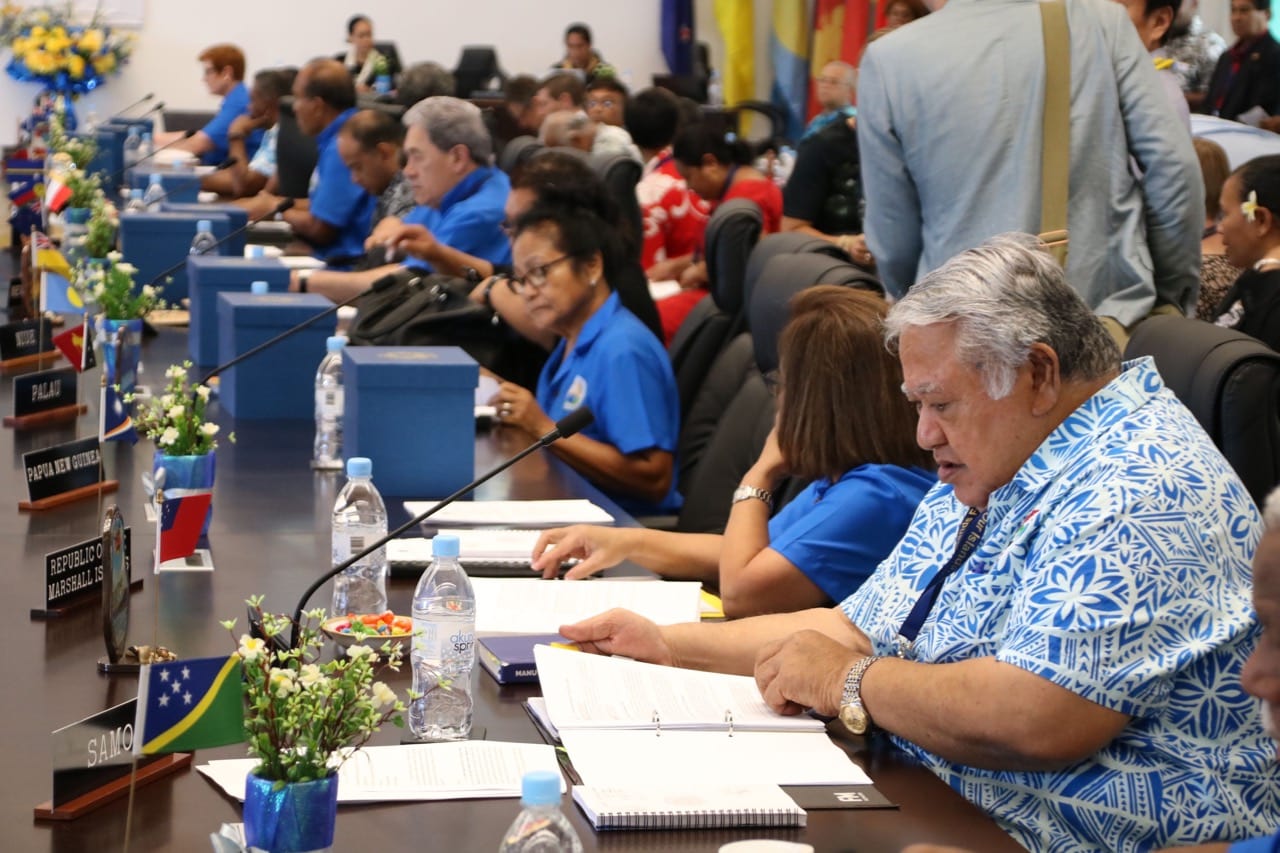Samoa police must stop abusing their powers and let the national media council address free speech concerns, says regional media watchdog the Pacific Freedom Forum, PFF.
This statement was originally published on pacificfreedomforum.info on 27 April 2017. You can find the Pacific Freedom Forum on Facebook at www.facebook.com/pacificfreedomforum.
Samoa police must stop abusing their powers and let the national media council address free speech concerns, says regional media watchdog the Pacific Freedom Forum, PFF.
“Citizens of Samoa are guaranteed the right to debate issues of public concern”, says PFF Chair Monica Miller, in response to police actions on a case involving stigmata claims.
“Police should do nothing to deprive them of those constitutional rights, especially when recent actions against Samoa’s largest media outlet are raising questions over where their legal advice is coming from.”
Abuse, bullying and threats
Since last year, Police have allowed an officer to continue abusing, bullying and threatening people online.
In recent weeks, police started an investigation into the identity of a blogger who exposed the officer, arrested one woman on the basis of Facebook comments, and, have taken action against a letter to a newspaper.
PFF is especially alarmed at police serving a warrant against daily newspaper Samoa Observer over a harassment complaint.
Public interest
“Harassment laws were never intended for use against news media but were originally designed to protect people from abusive phone calls, often women suffering stalking from men.”
Miller says this is obviously not the case with a young woman at the centre of the case against the newspaper.
“There is huge public interest in her claims of suffering stigmata,” she says.
“But after accepting public support, she and her family must also accept there will be public questions, and even criticism – one goes with the other.”
Last option
Miller questions why police agreed to take the complaint, and did not refer the complainant to the country’s newly established media council.
“Going to the police should be the last option, not the first option.”
She is especially critical of court officials for agreeing to the warrant.
“Court approval for search warrants is intended to act as a protection against police abuse of their powers”, says Miller, “not act as a rubber stamp for whatever the police bring them.”
“In this case, court officials have failed in their duty to respect the law.”
Millions in aid
PFF says the Samoa police cases again raise wider questions about policing in the region.
“Millions of dollars of tax payers’ money have been spent by Australia and New Zealand to improve policing in the region.
“Yet we are seeing more and more cases of police abusing their powers against news media, including in Australia and New Zealand.”
PFF has previously criticised police actions in Samoa, including officers smashing the phone of a member of the public using it to film police, and doing nothing when members of the press are threatened and assaulted in front of them.
Media council
From Papua New Guinea, PFF Co-chair Alex Rheeney says Samoa, as a member of the United Nations, must ensure it fully observes Article 19 of the Universal Declaration of Human Rights, which guarantees people’s freedom of thought, conscience and speech.
“Our Samoa media colleagues leading the new media council are well-respected regionally,” he says.
“They are more than capable of assisting Police through a dialogue aimed at building awareness by law enforcers of the role of the news media as the Fourth Estate, acting as a check and balance on the powers of parliament, government and the justice system.”



